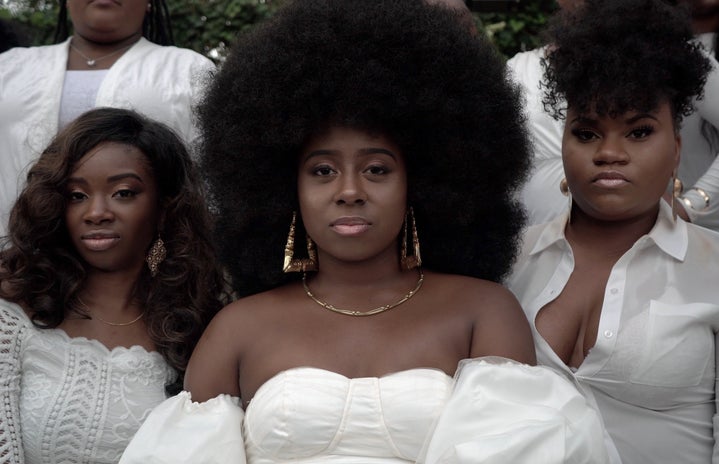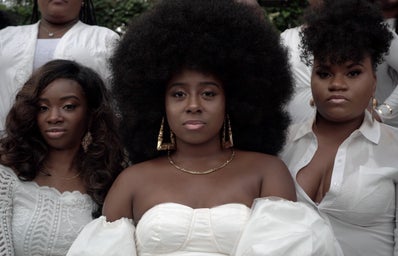“A sociocultural product of our surroundings—that is what we all are.” These were the words uttered by one of my social sciences professors. They weren’t hard to understand, yet they represent an observation I had never realized. Our experiences and challenges are, in part, influenced by who and what surrounds us.
Though I’ve faced many struggles throughout my life, just like everyone else, neither the color of my skin nor the texture of my hair have been one of them. When I was younger, I remember that I used to frequently watch YouTube hair tutorials that showed girls heat-styling their flawless, straight hair. Unconsciously, the idea of altering my natural curls to fit in with the defined beauty standards of the time seemed like the only right option for me.
But hair wasn’t really part of my day-to-day family conversations. No one forced me to wear my hair in a particular type of way. It was my choice. My hair wasn’t a motive to spark up a debate with regards to whether or not it was socially acceptable. In other words, because of the way I look, I grew up with what I later understood to be part of my white privilege.
In my elementary school years, there was an Afro-Puerto Rican girl who was called “Aunt Jemima” by some of my schoolmates. At the time, I failed to understand that her nickname wasn’t just a childish joke. Instead, it was a reflection of the racist practices condoned in my predominantly white school and reinforced by the ignorance of white children.
Bullying and racist comments aren’t just part of my former schoolmate’s life experience.

Seeking comfort and protection, the little girl asks her grandmother why her schoolmates describe her hair as “bad.” Petronila, her grandma, teaches her to defend the beauty of her natural hair.
“Your hair does not behave wrongfully, does not lie, does not offend, does not humiliate, does not mock. That is why your hair cannot be bad. Your hair has done nothing wrong,” said Petronila, comforting the little girl.
The wise grandmother doesn’t only advise her grandchild to ignore the inappropriate comments, but also motivates her to be proud of her Afro-Puerto Rican heritage, to know her history and to accept the way she looks.
If only we were to teach our kids stories, like Good Hair, perhaps respecting racial and cultural diversity would overcome the racist nature of both hair-shaming and discriminating against Black people.
As Frederick Douglass said: “It is easier to fix broken children than to repair broken adults.” Then again, what children become is the result of what we feed them.
You can continue to support anti-racist Puerto Rican works by getting a copy of Good Hair at local stores or online.


